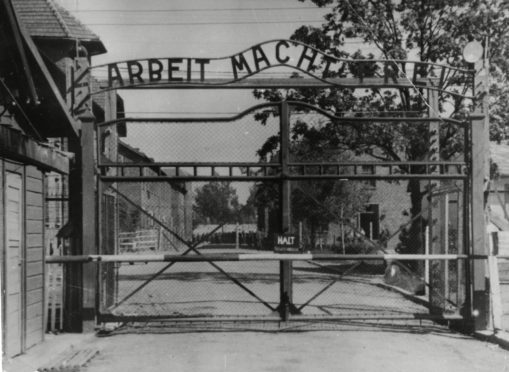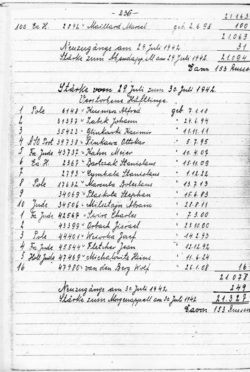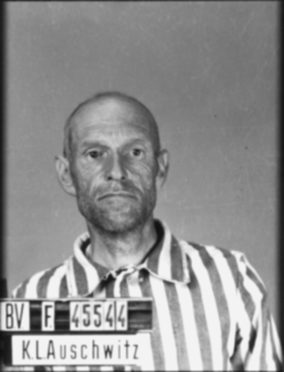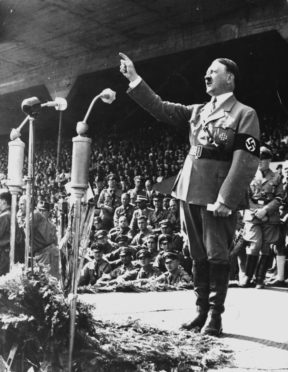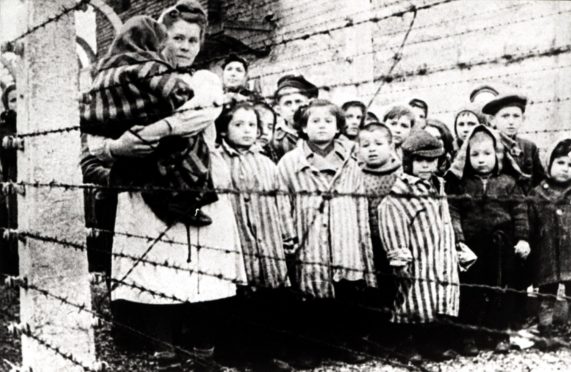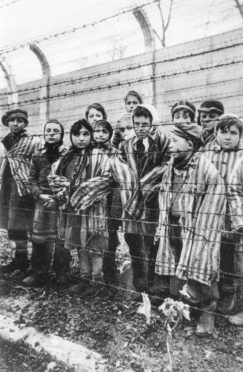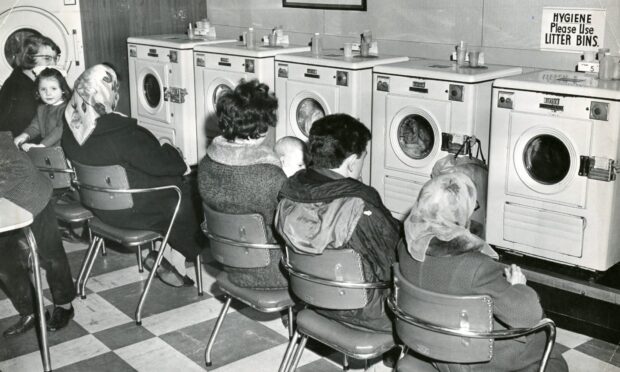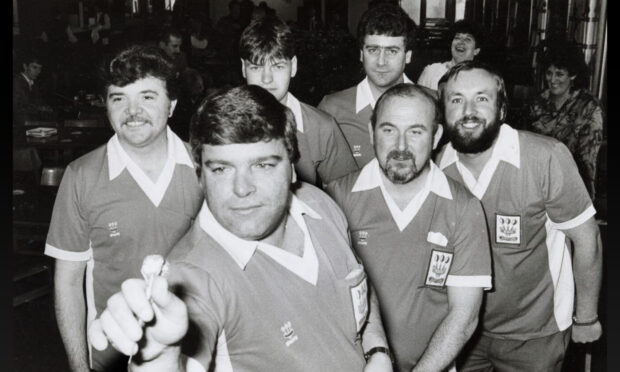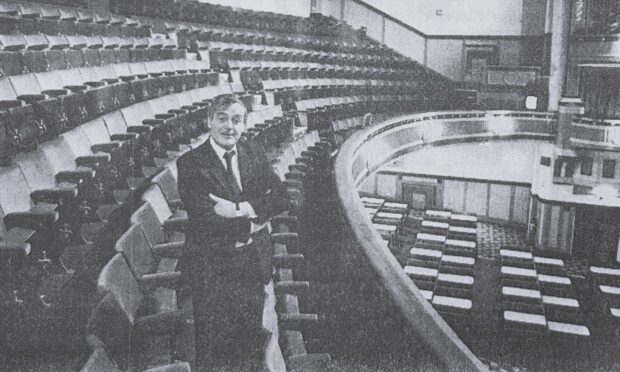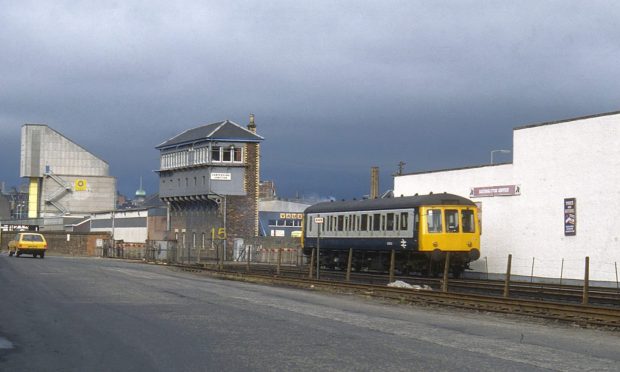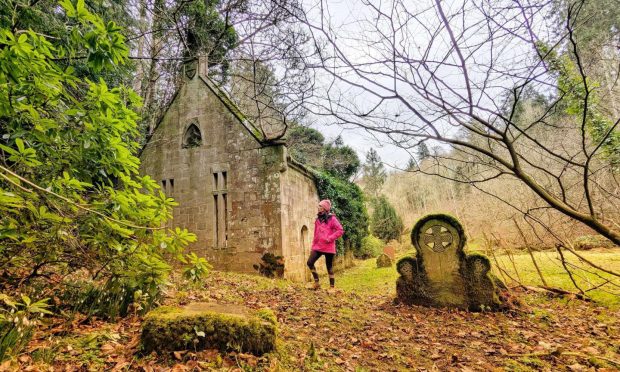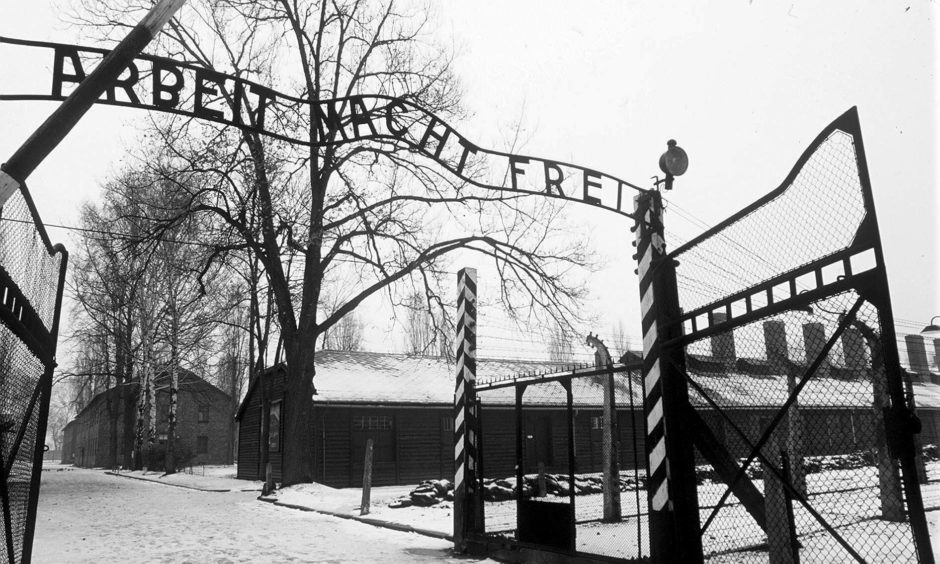
John Gordon Fletcher was wrongly labelled Jewish by the Nazis and was the only known Dundonian to have died at Auschwitz.
Fletcher’s life began a long way from the barbed wire fences of the Nazi death camp where at least 1.1 million people were murdered between 1940 and 1945.
Intelligence expert Professor Anthony Glees, academic adviser to the Home Office war crimes inquiry under Margaret Thatcher’s government, said Fletcher’s story of Dundonian courage was also a story of Nazi error which made his death “inevitable” because “no Jew was intended to survive Auschwitz”.
Dundee received word of his death in 1946
Fletcher’s efforts to support the Allied cause after moving to France would eventually lead to his capture and interrogation by the Gestapo and finally his death.
His fate was not known until after the war when Dundee Lord Provost Archibald Powrie received a letter from the French Ministry 75 years ago in 1946.
The French were still trying to discover what happened to the thousands of people who had been deported from Nazi-occupied France during the Second World War.
They discovered 50-year-old Fletcher’s details in the files at Auschwitz including a picture of him in the now infamous striped uniform which was given to inmates.
He perished in Auschwitz-Birkenau on July 29 1942 where he lasted just 21 days following his arrival in a cattle truck from France on July 8.
He was wrongly described as a ‘French Jew’ in the Death Books.
The death certificate which was later drawn up by the SS administration indicated “weakness of the heart muscle” as the cause of his death.
The cause of death given was usually fictitious.
Was French nationality his death warrant?
Dr Glees said: “This is the face of a hero, without any doubt.
“So what we now know is that John Gordon Fletcher had acquired French nationality, in a sense, tragically, his death warrant.
“If he’d been British I don’t think he’d have been exterminated, even if he’d been Jewish – which of course he wasn’t.
“The Germans were very pernickety about this kind of thing, perhaps fearing retaliation on German POWs, of which there was none, as you would expect.
“We’re all agreed Fletcher wasn’t a Jew.
“But he was recorded as one in the death registry of Auschwitz-Birkenau which was a death camp in which Jews were exterminated.
“That’s all consistent with how ‘the final solution’ was put into practice.”
Life and times of John Gordon Fletcher
Fletcher was born in the Overgate on December 12 1892 and was the son of Margaret Robertson and John Gordon Fletcher who was a sea captain.
He moved to France in 1913 where he served with the Intelligence Corps during the First World War and received the 1914-15 Star and the French military medal for his distinguished service as a British soldier by the French government.
He married Lucia Fontaine in 1919, who ran a bistro in the town of Albert in the Somme region, before becoming a French citizen in 1921.
By this time, he was using the French version, Jean.
He worked at the government-owned Potez aircraft factory on the outskirts of Albert which was the largest aircraft factory in the world.
When the Germans swept through France in 1940 they requisitioned the factory as they needed aircraft parts.
Fletcher continued to work at the plant but he was arrested by German military police on May 20 1942 after being betrayed by an informant to the Gestapo.
A father and son working at the factory, Ernest and Rene Pignet, were arrested at the same time and the three men were locked up at the Albert City Hotel for two days.
The French authorities – who operated under direct Nazi control – asked why Fletcher had been arrested as he was “neither Jew nor Freemason nor political”.
They wrote to his wife Lucia saying they didn’t know why he had been taken but after the war it was suggested in testimonies that he assisted the Pignets in their work.
The Pignets were secretly helping shot-down Allied airmen and prisoners of war to evade capture as part of an underground escape line.
Fletcher could speak both French and English which would have been an enormous assistance to British servicemen.
The three men were moved to Frontstalag 122 in Compiegne which was a German military prison used as an internment camp primarily for political prisoners.
Fletcher was registered under the number 5821 and in June 1942 he was selected with more than a thousand hostages who were going to be deported in retaliation for the activities of the Resistance despite never being tried by a court.
Journey to Auschwitz started at dawn
At dawn on July 6 1942 the prisoners were forced at gunpoint into cattle wagons at Compiegne station to go to Poland where the journey took two and a half days.
Fletcher was given the number 45544 on arrival at the Auschwitz base camp and was photographed before the prisoners were all marched on foot to Birkenau.
Fletcher declared himself protestant during registration and was sent to work at the camp whose name became a byword for the mass murder of Jews.
Dr Glees said: “We note he was ‘selected’ at the end of June 1942 but he was neither Jewish nor a Communist which even the French cops couldn’t quite understand, allegedly, showing how they always had to kowtow to the German overlords.
“Fletcher was taken as a hostage although it’s not entirely clear why, perhaps a measure designed to terrorise the French and warn them of the dangers of working for the Resistance rather than anything specific.
“He and his fellow hostages began their journey to the Nazi charnel houses of Poland on July 6, arriving in Auschwitz on July 8 in what will have been a horrific time in a cattle truck, without water, food or sanitation.
“He ‘died’ on July 29.
“In cases where there cannot be absolute certainty, I’d say I always try to operate on the basis of varying degrees of certainty, probability and possibility.
“What is certain is that he was in Auschwitz-Birkenau, died very soon after entry, and the cause of death was used to conceal what really happened to Fletcher, which was extermination and therefore murder, whether by gas, lethal injection or assault.
“What is probable – I’d myself say with a probability that borders on certainty – is that his wrong classification as a Jew led directly to his being killed.
“Birkenau was, after all, a designated death camp.”
He died for the honour of Scotland and France
In October 1945, following a petition by Lucia, Fletcher’s death certificate was amended to include the words: ‘Mort pour la France’ – ‘Died for France’.
Archivists from the Auschwitz-Birkenau State Museum said Fletcher would have been assigned the prisoner category as ‘French Jew’ “simply by human error”.
Dr Glees said: “As a Dundonian he died for the honour of Scotland as well as for France.
“It would be interesting to know if JGF understood what it meant to be classified as a French Jew?
“JGF’s story of Dundonian courage is in a sense also a story of Nazi error which made his death inevitable.
“No Jew was intended to survive Auschwitz and certainly not a French Jew in the Resistance.
“But a Brit could have stood a chance.
“How odious racism is.
“How many millions of entirely innocent people perished because Hitler came to power in Germany in 1933?”
Researcher-writer Pierre Labate is from the Mémoire Vive association which works to preserve the memory of two convoys of political hostages which were sent in 1942 and 1943 to Auschwitz from France.
“As for the very specific causes of John Fletcher’s death at Birkenau sub-camp, I don’t think we’ll ever know,” he said.
“Only three documents – including his photograph – escaped the systematic destruction by the SS of their archives from the concentration camp complex during the evacuation before the advance of the Soviet army in January 1945.
“And the two ‘administrative’ documents do not give us this clarification.
“No deportee from the same convoy, who could have testified to his death, returned to France in 1945.
“Beyond the suspicions of the Gestapo in France concerning Fletcher it must be recalled that he was taken and then deported as a hostage without any judicial trial.
“At the time of the train departure, the deportees did not know where they were going, and, when they arrived in Auschwitz, they were not allowed to write to their families.
“And when they died, their loved ones were not informed.
“Thus, families – including mine – lived for three years in uncertainty and anguish.
“The bodies of the disappeared – whatever the circumstances of their death – had been reduced to ashes in the crematoria or in open-air incineration pits.
“According to the Nazi will to mask the mass crime, they had disappeared in night and fog.
“It’s also in order to counter this annihilation policy that it’s appropriate to recall John Fletcher’s life.”
